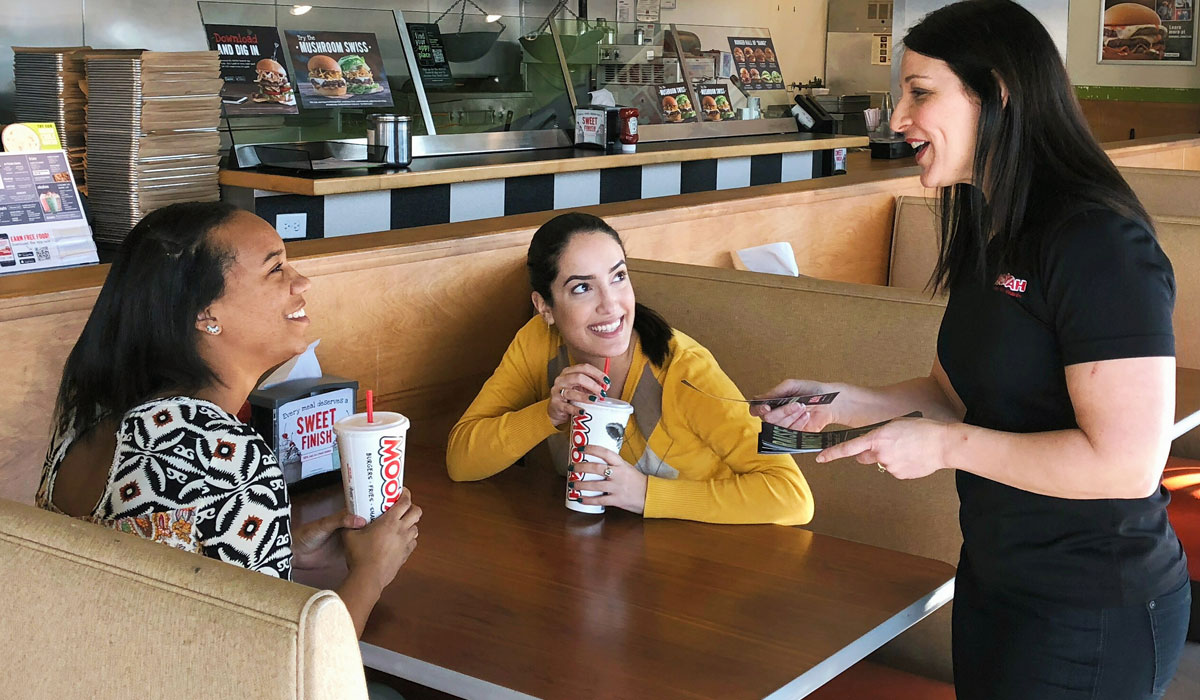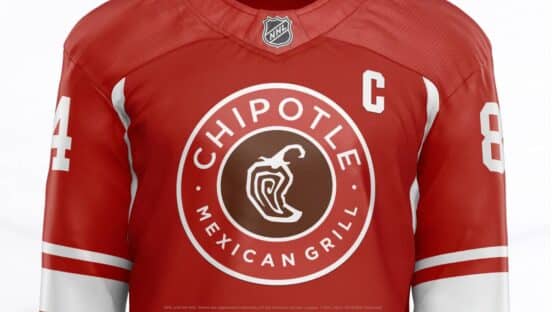When the financial analyst, wearing flip-flops, walked in and did a headstand, Mike Sebazco realized this might not be your average restaurant company. “I was like, ‘Wow, that’s an interesting casual Friday,’” Sebazco says.
From the outset, the 30-year-restaurant veteran has embraced the pulsing culture of Mooyah Burgers, Fries & Shakes, a fast casual brand undergoing a formative period of transition. Part of that change, triggered by the 100-unit chain’s purchase by an affiliate of Balmoral Funds LLC and Gala Capital Partners, LLC in May, is Sebazco himself. In early September, Mooyah officially announced Sebazco as the company’s new vice president of operations.
READ MORE: Mooyah sold, preps for strategic growth.
The former regional director of operations at Mimi’s Café, Sebazco was brought in to shore up execution, examine the economic model and driving efficiencies in labor and cost of goods, and communicate a measurement strategy for the business. All detailed ways to say Sebazco’s task is to get the organization running as smoothly as possible while it grows.
“The goal is we’re going to get this economic model right. We’re going to develop into an effective service organization. And yes, we’ll see what our bandwidth allows us to do from there,” he says.
In the wake of the sale, Mooyah was reluctant to outline any tangible growth plans, other than to say it is on pace to open 15 new locations in 2017. Chief operating officer Michael Mabry said the company didn’t want to toss a round number into thin air and see what happens. The goal, with an infusion of capital to boot, was to strengthen Mooyah’s infrastructure and make it a more appealing choice for franchisees and customers.
Sebazco echoed the sentiment. “There’s nothing worse than being unsuccessful in an opening. I’m not saying that from Mooyah’s point of view; It’s any concept that goes out and fails,” he says. “The goal isn’t going to be to go up by 500 or 1,000 units if what we’ve done is a failure.”
Sebazco worked with Mabry at Boston Pizza in the past, where he was the director of operations. He also served as vice president of operations at Dickey’s Barbecue Restaurants, Texas Land and Cattle Steakhouse, was a district manager at Fox and Hound Restaurant Group, and was the director of operations for Don Pablo’s.
“The culture [at Mooyah] is intoxicating,” he says of why he made the move. “It’s contagious.”
Mooyah is a brand that thinks a little bit outside of the box. It is, after all, the same restaurant that turned a turkey burger into a presidential candidate for a marketing promotion. Read more about it here.
One thing that attracted Sebazco to Mooyah, in addition to its creativity, was the company’s aggressive mindset. “They want to get moving and going,” Sebazco says. “They’re go-getters. And stuff doesn’t get in our way. Nobody gets bogged down in minutiae. We’re constantly evaluating and revaluating.”
What Sebazco brings to the table is an expert hand at systems implementation. That skillset was something the growing brand coveted.
His hire allowed Samir Wattar, the former VP of operations and supply chain, to focus solely on the latter half of his title—an area of the business that will become increasingly vital as Mooyah’s unit count grows.
The first order of business for Sebazco, he says, was to address the economic model and make sure brand standards were being executed throughout the system.
“That’s really a systems development implantation piece. That’s job one for me personally,” he says. The first week, Sebazco examined Mooyah’s current systems and how they related to its economic model. The company’s mission, he adds, isn’t about franchise sales, but about serving its franchise community.
“All department heads are tasked with ensuring that we’re delivering a service to the franchisees that exceeds their expectations,” he says. “I don’t know what that’s going to look like later on, but I know that standards are not going away. I’m going to be delivering to that.”
This system will need to account for the equilibrium in non-static environments, he says. For example, how will Mooyah train its current and growing franchise community to react within those brand standards when prices go up, or it’s time to negotiate a lease? “We want to make sure we have systems in place and are playing chess, not checkers,” he says.
What this will look like exactly, Sebazco says, is an evolving process. Mooyah isn’t an “add water or sprinkle fairy dust on it to make it work kind of place.”
Sebazco spent his early nights with the company hanging out with new franchisees to gauge their experiences and hopes for the brand, and to better understand why they would sign up to be a part of the Mooyah community. One husband and wife team, who had zero industry experience, told him they joined because Mooyah is one of those brands where quality of life and quality of product aren’t separate pieces.
“Mooyah is not just a cookie-cutter production-line kind of place,” Sebazco says. “There’s some art that matches the science, and I think that’s what appealed to them. That’s really what appealed to me.”











